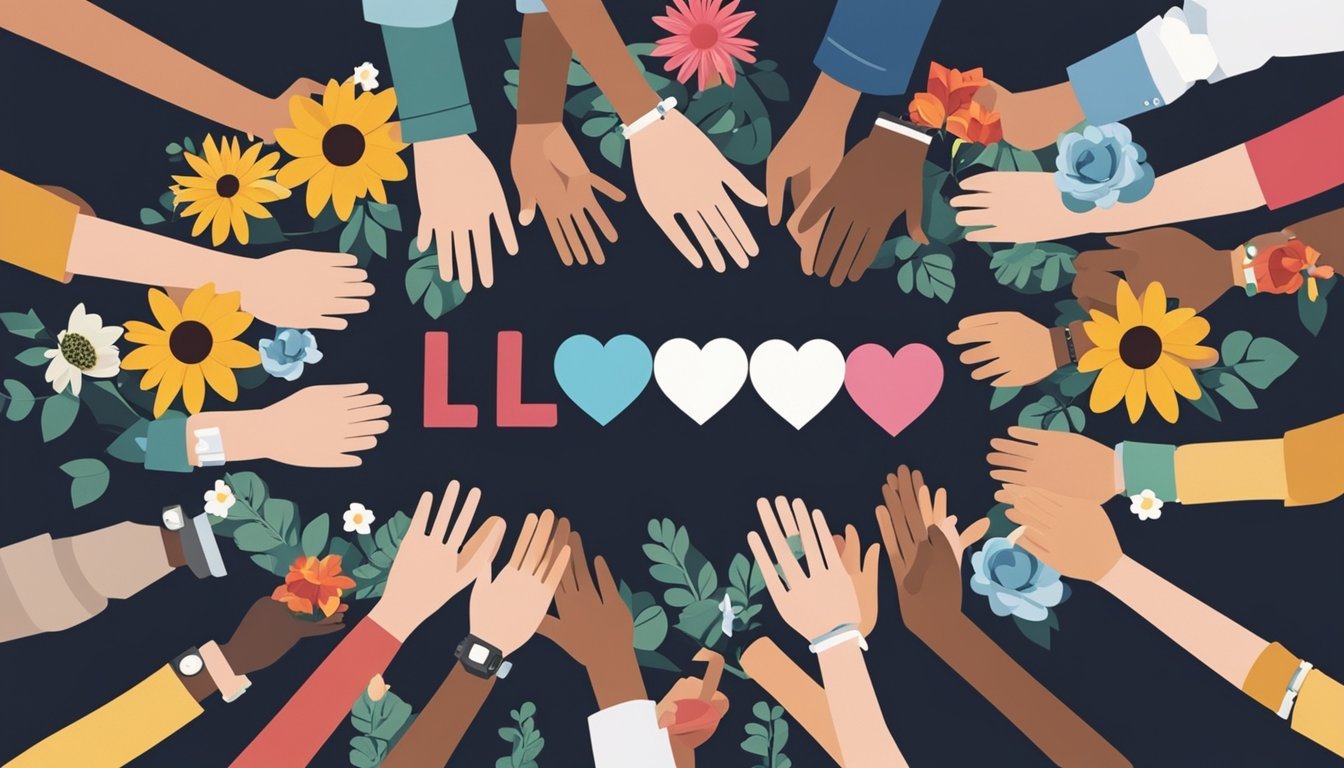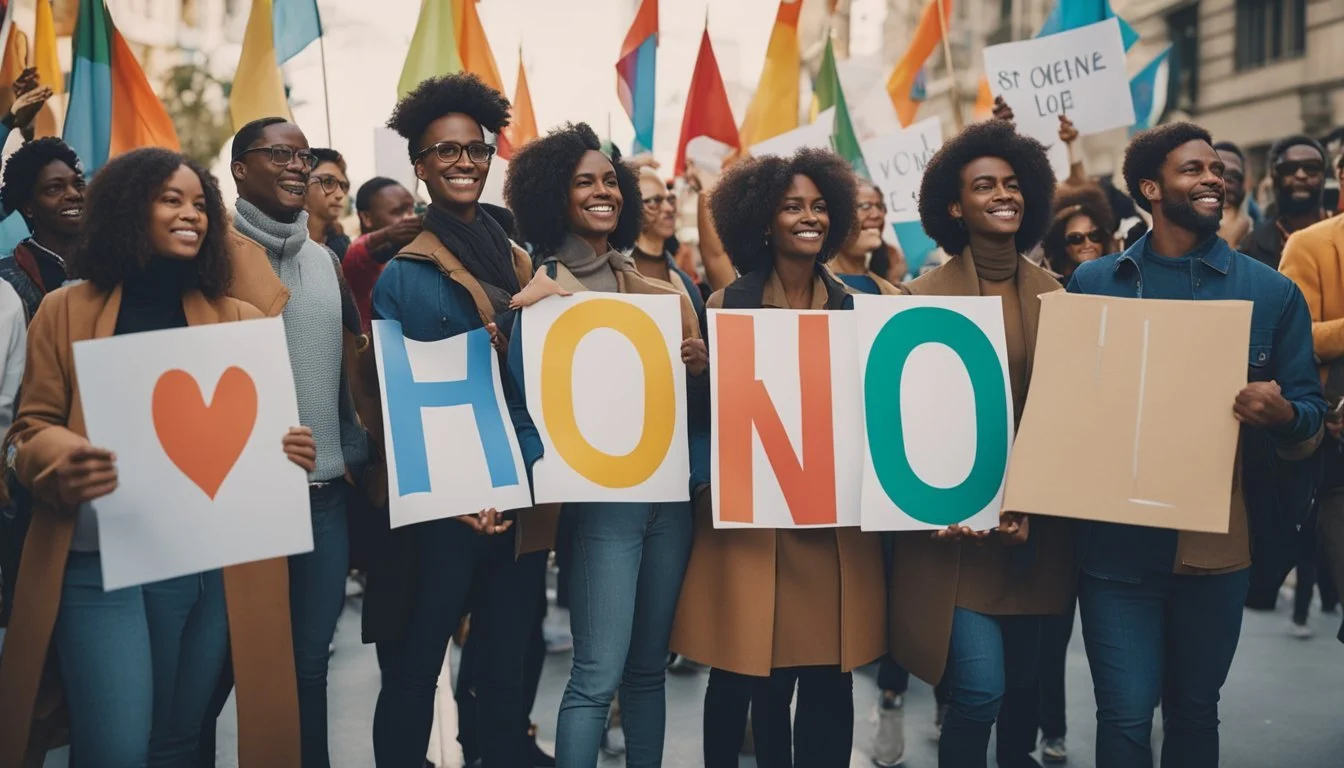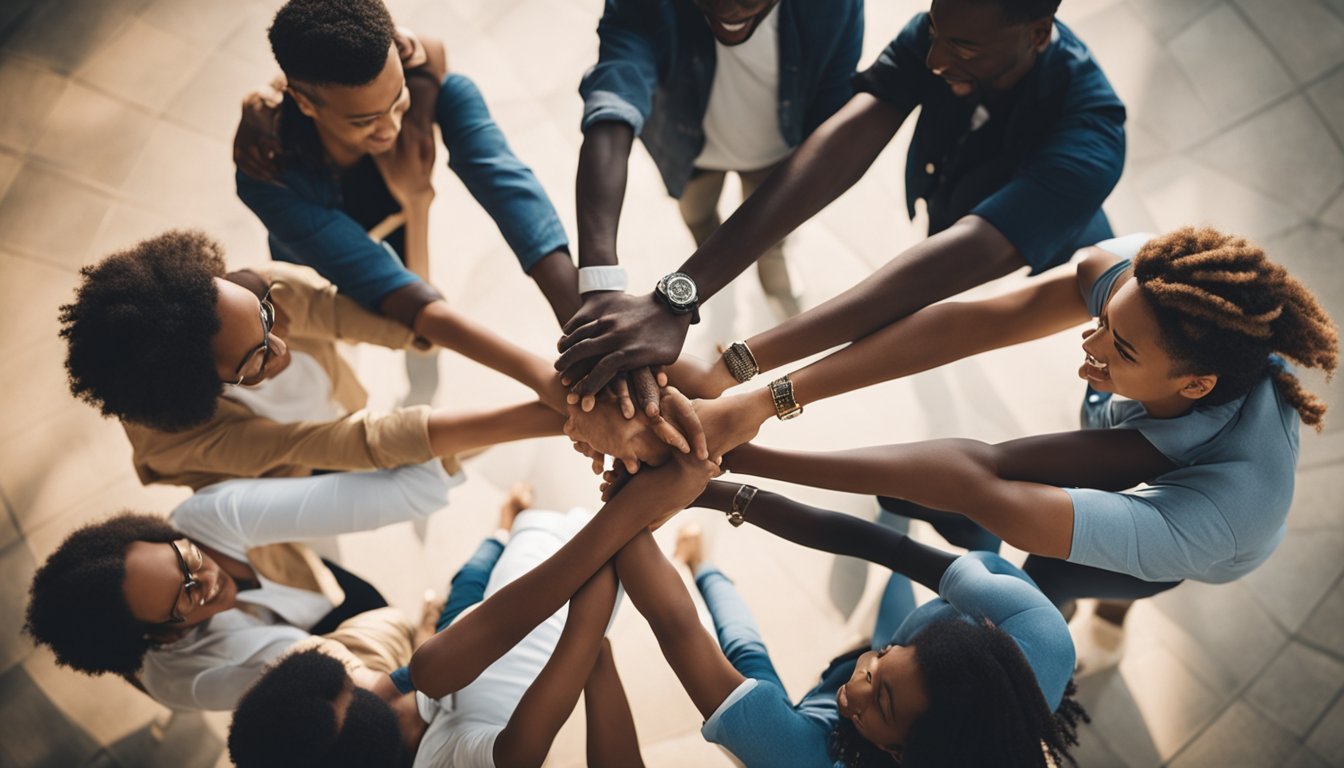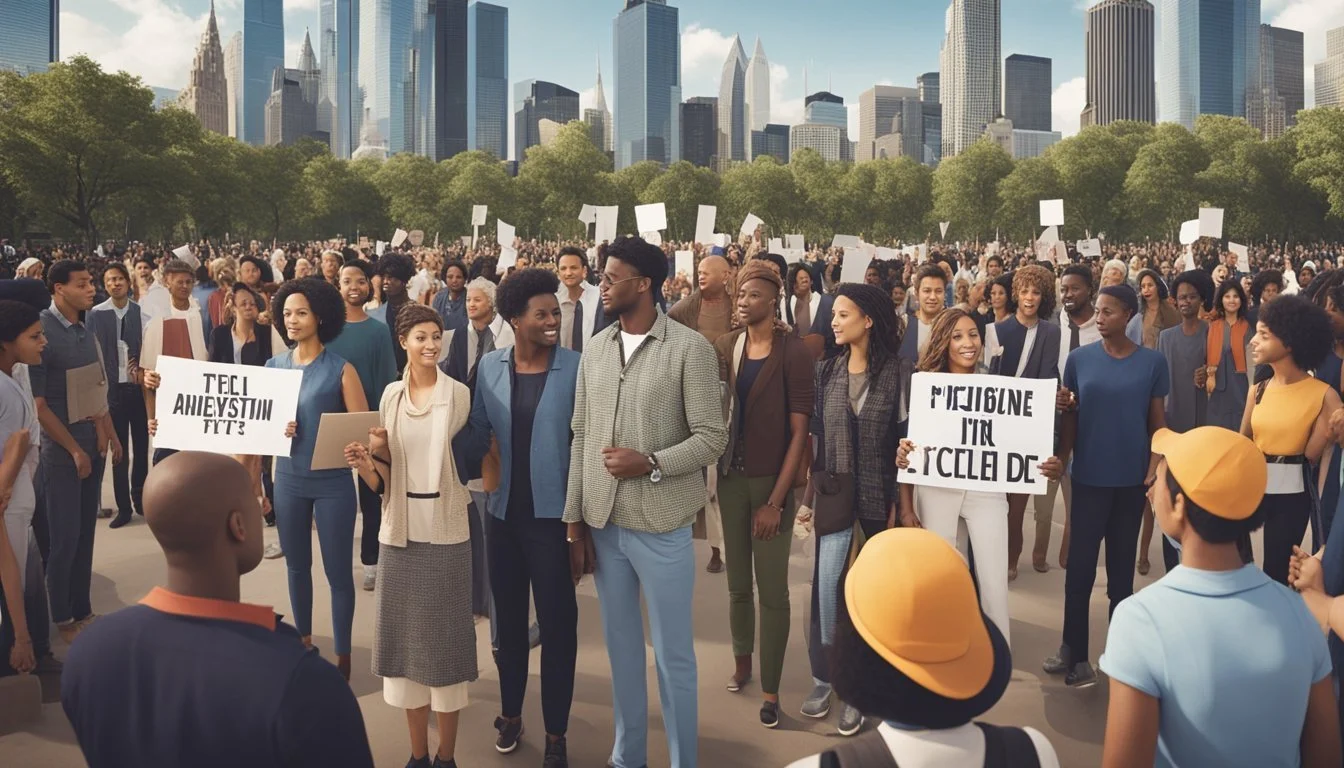5 Documentaries That Investigate the Role of Love in Activism
Unveiling Passion's Impact on Social Change
Documentaries possess a unique power to shed light on important social issues and inspire action. When it comes to activism, love often plays a crucial role in motivating individuals to fight for change and justice. These five documentaries explore the intersection of love and activism, revealing how personal connections and compassion fuel social movements.
By examining real-life stories of activists driven by love for their communities, families, and fellow human beings, these films offer insights into the emotional core of social change. Viewers gain a deeper understanding of the passion and dedication required to challenge injustice and work towards a more equitable world.
1) "Revolutionary Love" by Valarie Kaur (2020)
"Revolutionary Love" explores Valarie Kaur's journey as an activist, lawyer, and Sikh faith leader. The documentary highlights her concept of love as a force for social change and healing in divisive times.
Kaur shares personal experiences that shaped her philosophy, including facing discrimination after 9/11 and witnessing hate crimes against Sikh Americans. She advocates for compassion towards opponents and emphasizes the importance of self-care in activism.
The film showcases Kaur's work in various social justice movements, from racial equality to immigrant rights. It demonstrates how her approach of "revolutionary love" can be applied to address complex societal issues.
Viewers gain insights into Kaur's methods for cultivating empathy and understanding across divides. The documentary serves as both a personal memoir and a call to action for viewers to embrace love as a powerful tool for social transformation.
More information on Valarie Kaur
2) "The Power of Love" directed by Emma Yates (2022)
"The Power of Love" explores how love can be a driving force for social change and activism. The documentary follows several individuals who have channeled their love into impactful community initiatives.
Emma Yates interviews activists who have started organizations motivated by personal experiences of loss or injustice. Their stories demonstrate how compassion can fuel efforts to address societal issues.
The film highlights projects ranging from support groups for grieving families to educational programs in underserved areas. Yates examines how these grassroots efforts, born from love, create ripple effects in communities.
Through intimate conversations, the documentary reveals the emotional journeys of its subjects. It shows how they transformed personal pain into purpose, using love as a catalyst for positive action.
"The Power of Love" offers a hopeful perspective on activism, emphasizing the potential for individuals to make a difference through empathy and dedication.
More information on "The Power of Love" documentary
3) "Love and Justice" narrated by Bryan Stevenson (2023)
"Love and Justice" tells the remarkable story of Maya Moore Irons and Jonathan Irons. Maya, a basketball superstar, stepped away from her successful WNBA career to fight for Jonathan's freedom from wrongful imprisonment.
The documentary explores how their journey for justice transformed into a love story. It details Jonathan's wrongful conviction at age 16 and Maya's family's initial involvement through a prison ministry program.
Bryan Stevenson, a renowned civil rights attorney, narrates this powerful tale of perseverance and commitment. The film showcases Maya's dedication to Jonathan's case and the eventual overturning of his conviction after 23 years.
Their story highlights the intersection of love and activism, demonstrating how personal connections can fuel the fight for justice. The documentary offers a unique perspective on the criminal justice system and the power of unwavering support.
More information about "Love and Justice"
4) "Activism through Love" series on Vice
Vice Media produced the "Activism through Love" documentary series in 2022. The series explores how activists use compassion and empathy to drive social change.
Each episode focuses on a different cause and the individuals championing it through loving approaches. Topics range from environmental protection to racial justice and LGBTQ+ rights.
The series highlights non-violent protest methods and community-building initiatives. It showcases activists who prioritize understanding and connection over confrontation.
Interviews with both seasoned and emerging activists provide insights into their motivations and strategies. The documentaries also examine the challenges and successes of love-based activism.
Vice's signature immersive style brings viewers into the daily lives and work of these compassionate changemakers. The series aims to inspire viewers to consider how they can incorporate love into their own advocacy efforts.
Learn more about Vice documentaries
5) "Compassion in Action" by Thich Nhat Hanh (2015)
"Compassion in Action" explores the teachings of renowned Zen master Thich Nhat Hanh on applying Buddhist principles to everyday life and social issues. The documentary showcases Nhat Hanh's philosophy of engaged Buddhism, which emphasizes active compassion and mindfulness in addressing societal problems.
Viewers witness Nhat Hanh's gentle yet powerful presence as he leads retreats and gives talks on mindfulness, peace, and love. The film highlights his belief that compassion is not just a feeling, but a verb - an action that can transform individuals and communities.
The documentary features interviews with Nhat Hanh's students and followers, demonstrating how his teachings have inspired people to create positive change in their lives and the world around them. It also touches on Nhat Hanh's experiences during the Vietnam War and his lifelong commitment to nonviolence and social justice.
Through beautiful cinematography and intimate moments, "Compassion in Action" offers a compelling look at how love and mindfulness can be powerful tools for activism and social change.
More information on Thich Nhat Hanh
The Intersection of Love and Activism
Love and activism often intertwine in powerful ways. This connection has shaped social movements throughout history and influenced philosophical thinking on social change.
Historical Context
The civil rights movement of the 1960s exemplified how love could fuel activism. Dr. Martin Luther King Jr. emphasized "agape" - selfless, unconditional love - as a guiding principle. This approach inspired nonviolent resistance and helped build broad coalitions.
The AIDS crisis of the 1980s-90s saw LGBTQ+ activists driven by love for their community. Groups like ACT UP combined fierce advocacy with compassionate care for those affected. Their efforts led to increased research funding and improved treatment access.
Environmental activism frequently stems from love of nature. In the 1970s, Greenpeace founders' passion for wildlife motivated their direct actions against nuclear testing and whaling. This love-driven approach continues in modern climate activism.
Philosophical Perspectives
Feminist philosopher bell hooks argued that love is essential to meaningful social change. She viewed love as an action, not just a feeling, that could transform oppressive systems.
Paulo Freire, a Brazilian educator, saw love as crucial to his "pedagogy of the oppressed." He believed authentic, dialogical education required genuine care between teacher and student.
Mohandas Gandhi's concept of "satyagraha" or truth-force integrated love with nonviolent resistance. He saw love for one's opponent as key to effective social action.
Erich Fromm, in "The Art of Loving," explored how love could combat alienation in modern society. He argued that practicing love was vital for both personal and social well-being.
Impact of Love on Activist Movements
Love has played a significant role in shaping activist movements throughout history. Its influence can be seen in both the motivations of activists and the strategies they employ to create change.
Case Studies of Love-Driven Activism
The civil rights movement in the United States exemplifies love-driven activism. Dr. Martin Luther King Jr. emphasized nonviolent resistance and "agape" love as core principles. This approach helped galvanize support and foster empathy across racial lines.
In South Africa, Nelson Mandela's message of reconciliation and forgiveness after his release from prison demonstrated the power of love to heal societal wounds. His approach was crucial in dismantling apartheid and promoting national unity.
The LGBTQ+ rights movement has long embraced love as a central theme. Activist groups like ACT UP combined fierce advocacy with compassion for those affected by the AIDS crisis, pushing for better healthcare and social acceptance.
Measuring Effectiveness and Outcomes
Quantifying the impact of love in activism presents challenges, but several indicators can be used. Public opinion polls often show shifts in attitudes following love-centered campaigns. For example, support for same-sex marriage in the U.S. increased significantly after activists focused on stories of love and commitment.
Policy changes can also reflect the effectiveness of love-driven activism. The passage of civil rights legislation in the 1960s demonstrated the success of nonviolent, love-based approaches in achieving concrete legal reforms.
Social media engagement metrics provide insight into the reach of love-centered messages. Hashtags like #LoveWins have trended globally, indicating widespread resonance with love-based activist narratives.
Reduced incidents of violence or discrimination in targeted communities can serve as another measure of success for love-driven activist movements.






